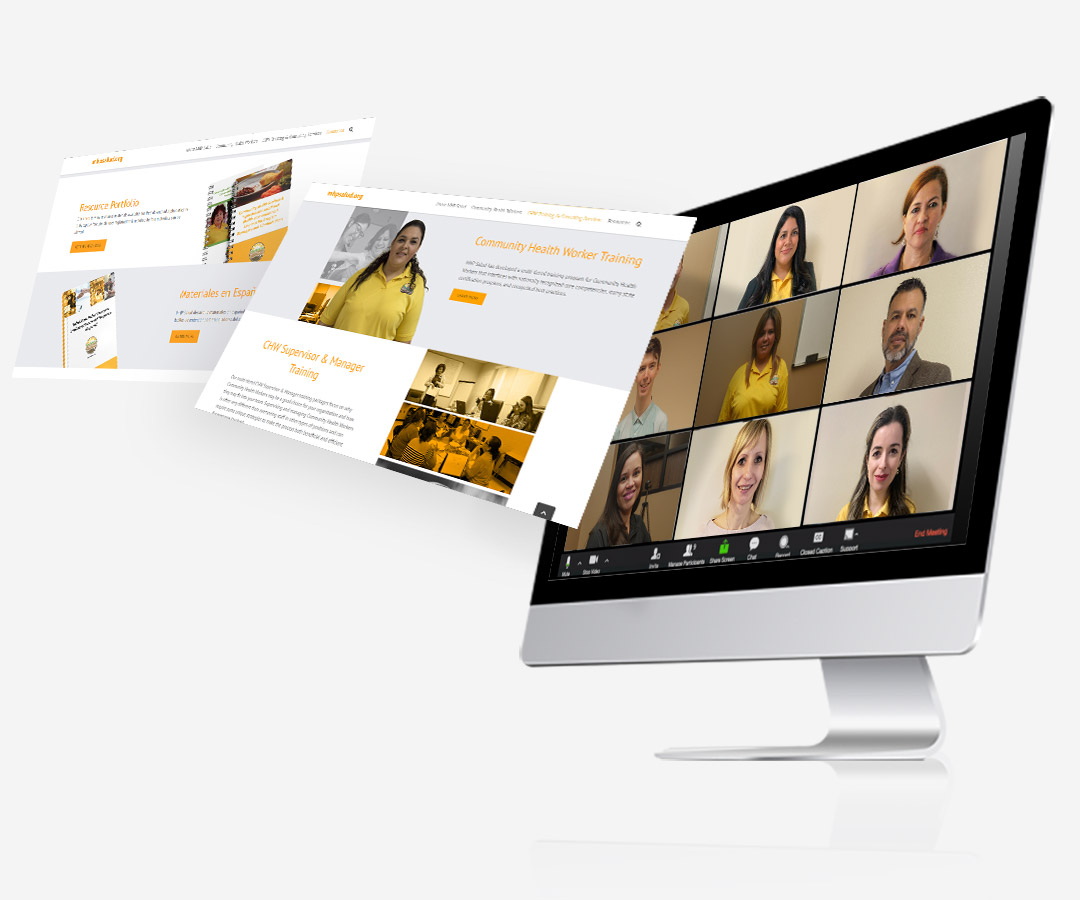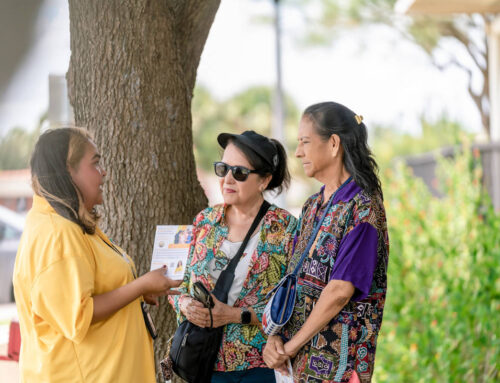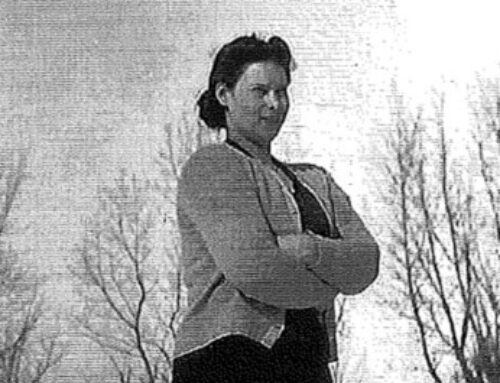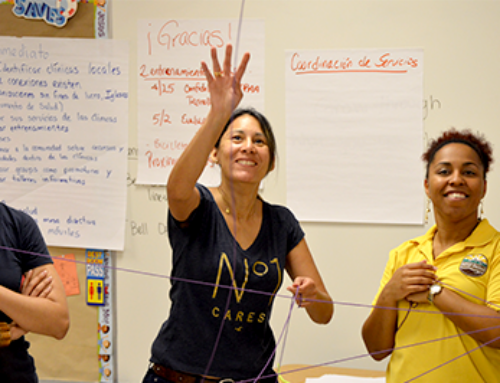Providing Technical Assistance on Issues Affecting CHWs and the Latino Community During the Pandemic
Published February 2021 | Back to all news and updates.
An Interview with Program Directors from MHP Salud’s Management Based Objective Initiative
For over 20 years, MHP Salud has collaborated with national health organizations and associations across the country to develop resources and tools that provide support for CHW programs at federally qualified health centers, healthcare organizations, and community-based organizations. Continuing this tradition in 2020 would seem to be challenging as safety measures put in place for the COVID-19 pandemic put restraints on the way organizations can collaborate. This wasn’t the case for MHP Salud’s Management Based Objective programs which managed to provide a unique virtual learning opportunity covering current topics affecting CHWs and the Hispanic and Latino community.
For the last few months, Program Directors Shannon Patrick and Hannah Mesa have led a team effort to provide technical assistance calls on two pressing current issues, COVID-19 and supporting aging services for Hispanics and Latinos. In this interview they discuss their experience working with various organizations from across the country to address these topics, as well as, the successes and challenges they’ve had developing and maintaining relevant support services in such a difficult time.
For the last few months, MHP Salud has been providing a unique learning opportunity for organizations across the country that work with Community Health Workers. With COVID-19 putting a halt to in-person meetings, your teams turned to monthly Technical Assistance opportunities…
What is technical assistance and what are the benefits of receiving support this way?
Shannon: Technical assistance can vary depending on the work we do. In this instance, we’ve been using virtual meeting applications like Zoom to provide opportunities to share information and resources via presentations and conversations on pressing health issues with organizations serving our communities such as aging service providers, Federally Qualified Health Centers, Primary Care Associations, and other similar health organizations. We provide detailed information and presentations on special topics of interest. Ideally, the goal is to provide a space for peer support–a place for organizations to share challenges, concerns, and pose questions. What’s great about having everyone in one place is that not only are we providing information, but the other organizations on the call tend to provide information as well.
As more organizations are turning to virtual support, how do you make technical assistance calls interactive?
Shannon: Having everyone involved is important to us. That’s why we ensure that we ask questions throughout our presentations. Tools like Zoom polls and breakout rooms can be used to encourage discussions amongst the different groups. Lastly, we like to save time at the end of each TA call to open up the floor for questions and discussion.
Hannah: These interactions as well as feedback we get from a brief form we have participants fill out after our sessions, often lead to topics for future calls. For example, during one of our recent sessions about the flu vaccine, COVID-19 vaccinations kept coming up. We decided to reach out to the Centers for Disease Control for help and they provided us with a speaker who would be able to answer questions.
This year CBA’s team is focusing on CHWs-COVID-19—What sorts of issues are being discussed within the TA calls?
Hannah: We’ve been talking a lot about a CHWs role in the COVID-19 pandemic response. For example, providing information on programs that train CHWs to help with contact tracing and discussing how CHWs can conduct outreach and information sharing around testing and vaccines.
We also hear from a lot of migrant health centers, Federally Qualified Health Centers, and other organizations that serve the Hispanic and Latino populations about there not being enough COVID-19 resources made specifically for their populations. This often to leads to discussions on the importance of the CHW’s role in our community.
Who is involved in developing the topics being discussed?
Hannah: It’s a team effort. We want to make sure the information is relevant, so we ask for feedback and suggestions via a brief form. We have guest speakers that are experts in the field who bring in relevant topics for us to discuss as well.
How are collaborators and presenters chosen and what value do they bring to the table?
Hannah: We work with former collaborators, our contacts from the CDC, Area Health Education Centers, our learning collaboratives, FQHCs, and anyone we consider to have expertise in the subject matter at hand.
Shannon: We are lucky in that MHP Salud already has a strong network of partners due to our program’s activities such as resource development which require us to collaborate with organizations that are considered subject matter experts in the topics we discuss.
What is your understanding of the impact that COVID-19 has had on CHWs and the organizations that work with them?
Hannah: We’ve been hearing a lot about how the delivery of care has been challenging; in terms of having to switch from in-person to virtual from both an organizational stand-point and on the client’s side. Thinking about rural communities and migrant communities, their virtual capacity is limited. How is this impacting them?
We’re also hearing that there just isn’t enough information and educational tools out there that are culturally appropriate. For those that are serving migrant workers, CHWs are wondering how they can effectively outreach to them about COVID-19 or how these workers will get a two-dose vaccine if they’re constantly having to move frequently to work in different locations. And for those not moving around as much, there are still questions around working and housing conditions.
There have also been conversations around how family life has changed, for instance, the challenge of having kids learn from home. In addition, we’re listening to discussions around the cultural stigma of getting tested, the vaccine, and how CHWs can address that.
Strengthening Services for the Older Adult Hispanic Population–there are many challenges for this community. What sorts of issues are being discussed within these TA calls?
Shannon: Our calls focus on a variety of topics that affect the older adult population and a CHWs role in providing support around these same topics. Thus far, we’ve covered Aging in Place, Social Isolation, Dementia, and the impact of the pandemic on the aging Hispanic and Latino community. It’s disproportionately affecting older adults–they are at higher risk. What’s unique about our population is that there are a lot of multigenerational families that live under one roof. You can have a situation where a grandparent is constantly being exposed by a grandchild who is an essential worker. It’s a tricky situation.
These days, information moves very quickly. How does the team ensure that the information provided on these calls is up-to-date and accurate?
Shannon: We do our best to research the topics with the most relevant information from trusted sources like the CDC for example and making sure to have subject matter experts on hand to speak about these topics.
In addition to great discussions and the sharing of knowledge, you provide access to some great resources…What sorts of resources are shared?
Shannon: We like to share our MHP Salud resources because they are specifically made with a focus on Community Health Workers, which is a focal point of our TA calls. We also share partner resources and any other resources that are trusted and relevant to the topic at hand.
Hannah: We share our COVID 19 resource directory which was created to support our participants with resources that we’ve developed on ones from our partners.
You get participation from organizations at various stages in the CHW profession and individuals in different roles, how can organizations prepare to ensure they get the most out of participating in a technical assistance call?
Shannon: For Aging Services I encourage organizations that join us to participate in polls, ask questions, and give as much feedback as possible via our feedback form.
Hannah: I would give the same advice as Shannon. Fill out feedback forms. We also put out our topics ahead of the calls so it’s also a good idea to review the topic before the call and come prepared with questions.”
These calls have been going on for a few months now, as far as feedback….what have you found organizations to value the most from them?
Shannon: Our participants really appreciate learning new information on topics that are relevant to the older adult Hispanic and Latino population. We’ve also had instances where an organization is having a problem and through our discussion, another organization will provide a solution that hasn’t been utilized yet. These exchanges are really valuable.
Did you make any adjustments to your approach along the way?
Hannah: We have participants that are bilingual and some that are more comfortable speaking Spanish, and although are presentations are available to download in Spanish, we realized that there is a need for Spanish language calls. We will likely begin doing so later in 2021.
You plan on providing support throughout the year on a monthly basis, what can organizations look forward to?
Shannon: People can look forward to getting up-to-date relevant information that they can have confidence in. With these calls they won’t have to worry about missing out on important information that is crucial during these times.
How can an organization catch up on missed calls?
All the presentations are on the website, for download at any time. Also, if someone has questions, who they should fill out our request form on the website or they can email programming@mhpsalud.org and we will respond within 48 hours.

Hannah Mesa, MPH, MPP, has a background in public health and public policy. Her focus has been on community-based work, including supporting maternal child health as a certified birth doula. Her work with health organizations and Federally Qualified Health Centers has supported Latino and Hispanic communities across the United States and internationally in Colombia, Mexico, and the Dominican Republic. Currently, she serves as the Program Director for MHP Salud’s Capacity Building Assistance project.

Shannon Patrick, MPH, has a background in public health and global public health. Her work has been focused on serving Hispanics and Latinos in Community Health Centers through various initiatives and Community Health Worker programs. She has had the unique experience of working with a health clinic in the Dominican Republic that has had a deep impact on the work that she continues to do. Currently, she serves as the Program Director for MHP Salud’s Aging Services for Hispanic Older Adults project.
The Capacity Building Assistance Team is holding COVID-19 and CHWs Virtual Technical Assistance calls on April 15 and June 17, 2021, at 3 pm EST. Reserve your seat.
Free Technical Assistance for Service Providers and Individuals that Serve Hispanic Older Adults
Our Strengthening Aging Services for Hispanic Older Adults is holding Virtual Technical Assistance calls on the 3rd Wednesday of every month at 2 pm EST. Reserve your seat here.
Blog Topics
About MHP Salud

MHP Salud has over 35 years of experience implementing CHW programs and training organizations looking to start and/or strengthen their own CHW programs. Visit our CHW Training & Consulting Services page to learn more about how we can help.






